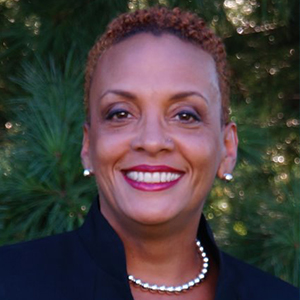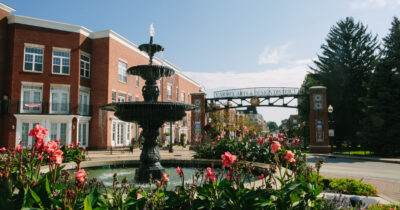***This piece is part of our content presented at Inclusive City 2020. On Oct. 28, 2020, from the stage of the Madam Walker Legacy Center, we revealed plans to dismantle systemic racism in Central Indiana at Inclusive City 2020. Learn more about that event here.***
from Pamela Ross
Vice-President of Opportunity, Equity, & Inclusion
What excites me about this generation of change is the understanding that the issue of racism in this country is beyond how individuals think and treat one another, but that the path to equity—true equity for all—lies within the dismantling of systems. Systems that were purposely designed to lift one group higher and higher by  dehumanizing others.
dehumanizing others.
Now these days, words like ‘opportunity’ and ‘equity’ and ‘diversity’ are buzzwords we all hear a lot—in both the not-for-profit and the for-profit business communities. This is a good thing, yes, but sometimes when we hear these words over and over—even when they are powerful and necessary ideas—that’s all they are, ideas. They need to be matched with accountability and action.
So as we talk, we need to keep “getting real” about that.
We are not merely talking about ideas and values—we are talking about real people and their lived experiences of how systems have prevented them from opportunity.
We need to have conversations that are not only about building awareness of our reality, but also about finding opportunities to change our reality. And a huge key to that is through building authentic relationships from those who don’t look like you. Who don’t live in neighborhoods like yours or have jobs like yours. When we as individuals and community leaders expand our networks—and our minds—that is the precipice of great change. Beyond the buzzwords.
We want change; we know we need to change. But how do we get to change?
One part of this work I’m closest to is neighborhood empowerment and placemaking. In this case, we have been changing how we relate to the people and the leadership in a neighborhood.
We recognize that historically, we don’t have the credibility—or power—in many of our neighborhoods. But many of the residents have that credibility and power to make things happen. So we need to work with them and listen to them and help them realize their vision for their communities. The residents in these communities are untapped assets and gifts yet to be celebrated by our city and region. We have learned over the years that these neighborhoods are not underserved or marginalized, but rather under-appreciated. This shift has been paramount within our organization. And we are finding new ways to appreciate each of our neighbors every day.






Leave A Comment